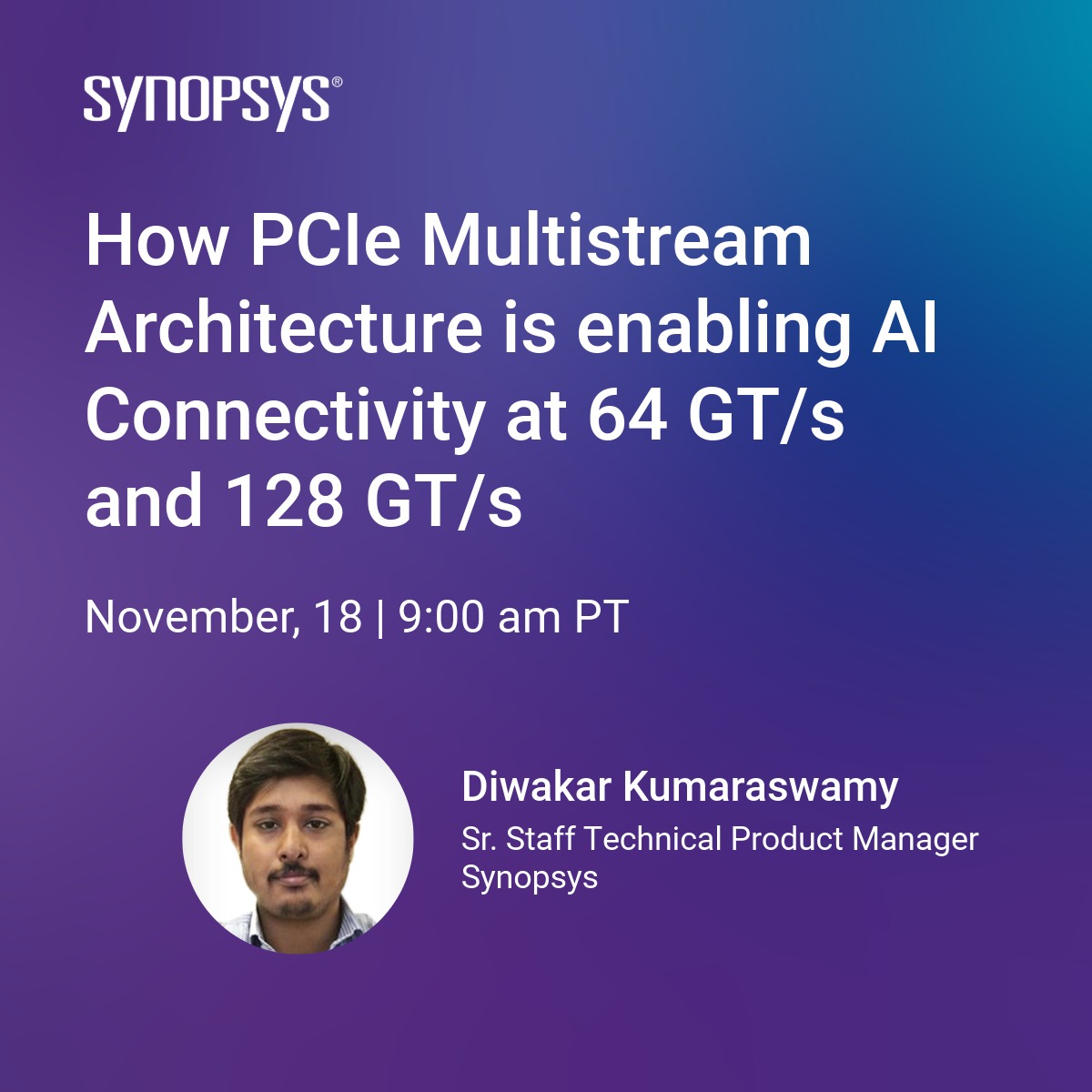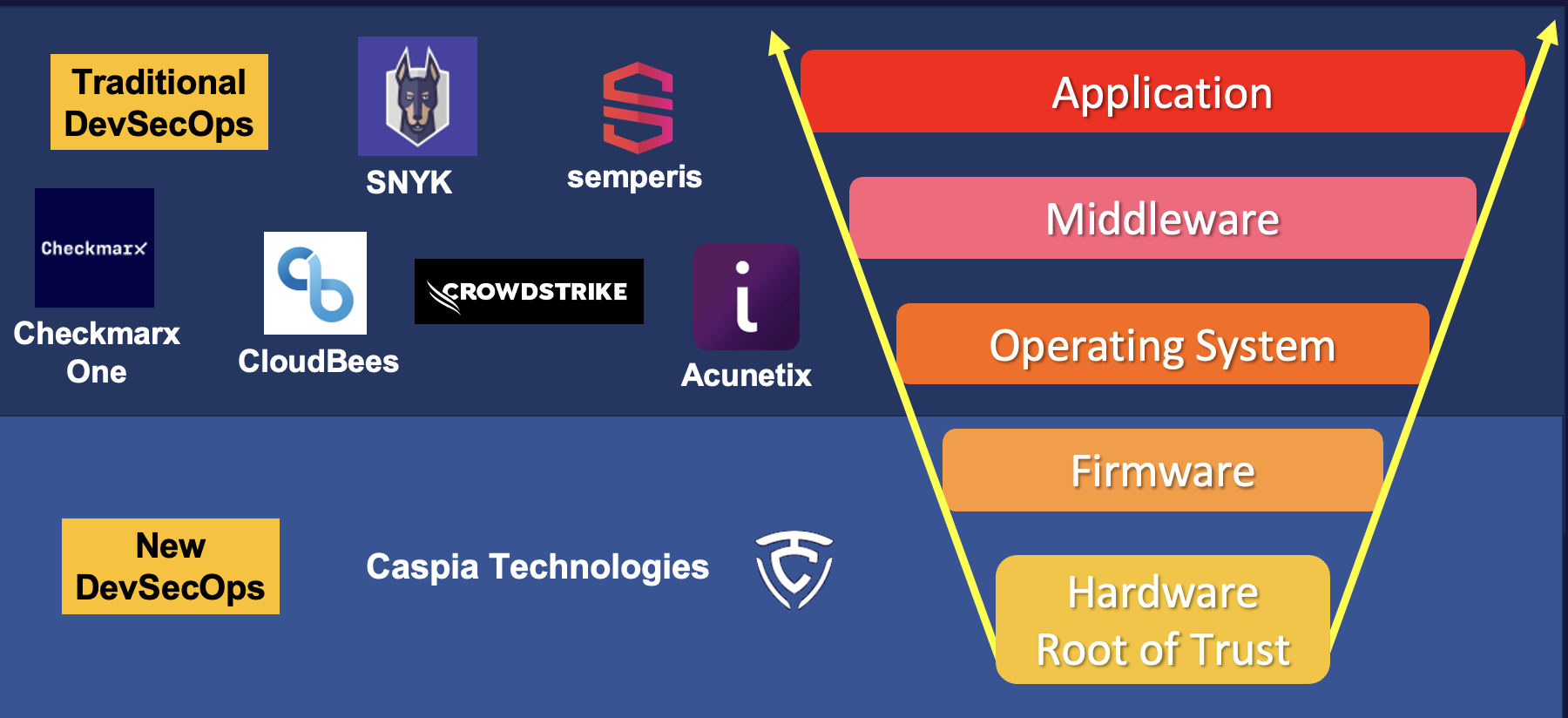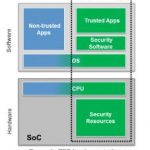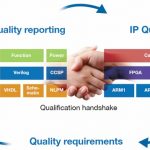This blog was originally posted on Paysa.com but since Rajeev Madhavan is one of our EDA Heroes I thought it was worth a re-post. In case you do not know Rajeev, he started his EDA career at Cadence then was co-founder and VP of Engineering at LogicVision (acquired by Mentor). Next he was Founder, President, and Chairman of Ambit Design… Read More
 EDA Has a Value Capture Problem — An Outsider’s ViewBy Liyue Yan (lyan1@bu.edu) Fact 1: In the…Read More
EDA Has a Value Capture Problem — An Outsider’s ViewBy Liyue Yan (lyan1@bu.edu) Fact 1: In the…Read More WEBINAR: How PCIe Multistream Architecture is Enabling AI ConnectivityIn the race to power ever-larger AI models,…Read More
WEBINAR: How PCIe Multistream Architecture is Enabling AI ConnectivityIn the race to power ever-larger AI models,…Read More A Six-Minute Journey to Secure Chip Design with CaspiaHardware-level chip security has become an important topic…Read More
A Six-Minute Journey to Secure Chip Design with CaspiaHardware-level chip security has become an important topic…Read More Lessons from the DeepChip Wars: What a Decade-old Debate Teaches Us About Tech EvolutionThe competitive landscape of hardware-assisted verification (HAV) has…Read More
Lessons from the DeepChip Wars: What a Decade-old Debate Teaches Us About Tech EvolutionThe competitive landscape of hardware-assisted verification (HAV) has…Read More Think Quantum Computing is Hype? Mastercard Begs to DisagreeJust got an opportunity to write a blog…Read More
Think Quantum Computing is Hype? Mastercard Begs to DisagreeJust got an opportunity to write a blog…Read MoreHow to Secure a SoC while Keeping Area and Power Competitive?
I have attended LETI conference last June and remember the paper presented by Alain Merle, their security guru. Alain said that smart cards are secured because up to 50% of the Silicon area is dedicated to security. When you design a SoC to address applications like smart metering, NFC payment or embedded SIM, you know in advance … Read More
The New Reality for IoT Security
Recent Distributed Denial of Service (DDoS) attacks are forcing a shift in Internet-of-Things (IoT) security thinking. The dangers are expanding as attackers are taking advantage of billions of IoT devices, conscripting them into their botnet armies for massive DDoS attacks.… Read More
Fabless and IDMs Training up on Integrated Photonics
I had the good fortune to be able to attend a very informative five-day photonic integrated circuit (PIC) training this last week in Santa Clara, CA. The training was organized by Erik Pennings of 7 Pennies consulting and hosted by Tektronix. Several ecosystem partners from the design automation, photonic foundries and photonic… Read More
CEO Interview: Rene Donkers of Fractal Technologies
Fractal is another one of those very successful emerging EDA companies that you don’t read a lot about, except on SemiWiki. Rene Donkers is co-founder and CEO of Fractal Technologies, a company addressing IP quality assurance. This is a niche in the SoC tooling market that deserves some justification. Why not use an IP as-is… Read More
Thin film Semiconductor Solutions for an Energy-Efficient Future
For an industry with an estimated revenue potential of $22 billion by 2022, and a CAGR of 14% throughout 2016–2022, the slightest innovation in current modules holds considerable profit potential. The thin film semiconductor market has evolved from the previous generation of semiconductor electronics in the best interests… Read More
Foggy 5G Forecasts Coming into Focus
My colleague and automotive safety system guru at Strategy Analytics, Ian Riches, is fond of citing Amara’s Law. Named for Roy Amara (1925-2007), research, scientist, forecaster and long-term president of the Institute for the Future, the “Law” states: “We tend to overestimate the effect of a technology… Read More
CEO Interview: Albert Li of Platform DA
Platform Design Automation, Inc (PDA). recently closed a US$6 million pre Series A investment round, and the company has shifted its focus from providing SPICE modeling related software and services to forming a complete AI-driven ecosystem from probing to simulation. Albert Li was the GM of Accelicon, a leading EDA tool and … Read More
REUSE 2016 is Next Week at the Computer History Museum!
The first REUSE Semiconductor IP Tradeshow and Conference is next week at the Computer History Museum in Mountain View, CA. Given the importance of IP I would strongly suggest attending this event. The presentation abstracts are up now and there are a few I want to highlight as they are companies that we work with on SemiWiki:
HBM2… Read More
Automobility: The End of Infotainment
Padmasree Warrior, CEO and chief development officer of NextEV USA, kicked off day two of the LA Auto Show’s Automobility LA with a powerful perspective on the current state of the automotive industry. She rattled off the usual litany of congestion, highway fatalities, emissions and changing usage and ownership models… Read More





AI RTL Generation versus AI RTL Verification